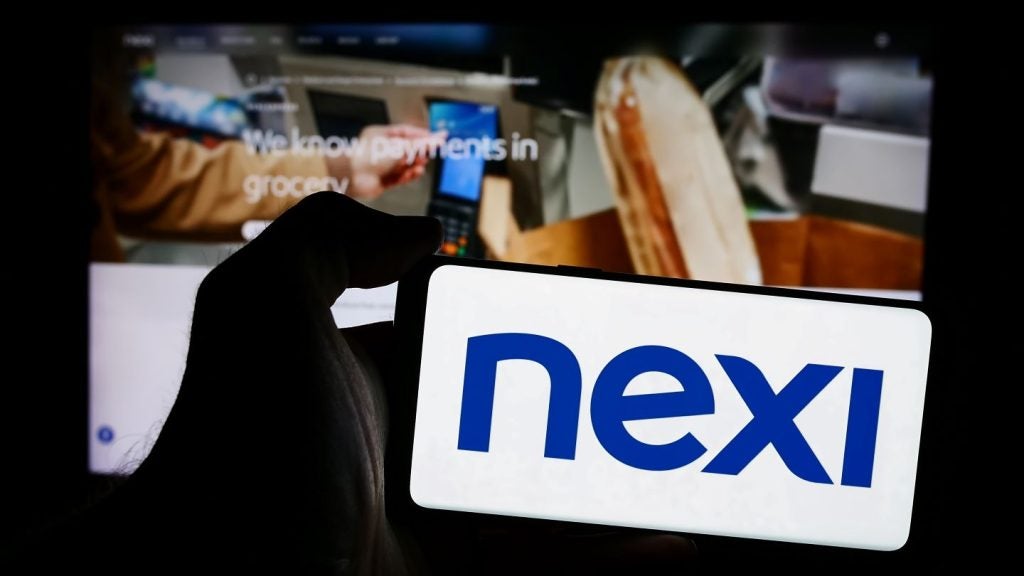Of late the UK’s payments system has
experienced change unequalled in most countries, the most
significant being the advent of the Faster Payments Service – which
has yet to deliver on its full potential. The UK now aims to
terminate cheque use, an adjustment promising to be fraught with
difficulty.
Sweeping change has become a feature
of the UK’s payments market, the most notable of these the launch
of the Faster Payments Service in May 2008. For many businesses and
consumers, the next hurdle that lies ahead is the demise of the
cheque, following the announcement by the Payments Council (PC)
that on 31 October 2018 central cheque clearing will cease.
The decision by the PC followed 18 months of
consultation and will bring an end to an instrument that has been
in use in the UK since 1659. Crowded out by electronic payment
alternatives, the use of cheques has been in steady decline since
peaking at 4 billion in 1990. The number of cheques cleared has
fallen at an average of about 7.5 percent a year since 1999.
However, at the current rate of attrition
cheques will still be around for many years to come. The PC
estimated that without actions to terminate their use cheque
volumes will be at 602 million in 2018 – 260 million written by
individuals and 342 million by businesses.
From a cost perspective accelerating the
decline in cheque use holds considerable attraction.
According to the PC, assuming a complete end
of cheque use there will be ongoing annual cost savings to banks of
about £200 million ($320 million) in 2018 and about £750 million to
large companies and the public sector. From an ecological
perspective the PC noted that in 2008, 45,000 trees were cut down
to manufacture cheques.
However, as the PC’s CEO Paul Smee conceded at
the time of the end date for cheque clearance announcement, the
payments industry faces a major challenge to find alternatives to
the cheque. The cheque, he stressed, “occupies a unique place in
British culture.” Not all agree, though, that October 2018 is the
appropriate end date for cheque use.
“We believe cheque withdrawal is premature,”
Max Balfour senior vice-president, strategic business development
at payments systems vendor Fidelity National Information Systems
(FIS), told EPI.
He added that there are many ways in which
cheques are used for which there are no suitable alternatives at
present.
“We could engineer alternatives but to make
them available on a ubiquitous basis will be a long-term process,”
Balfour said.
An important role
Despite the decline in volumes,
cheques still play an important role in the UK’s payment market.
According to the PC, in 2008 each business in the UK wrote about 50
cheques per month and received around 1,080 cheques on average.
The use of cheques by consumers in 2008 was
lower, with each adult having written 1.2 cheques and received 5
cheques per month on average. However, looked at from another
perspective, in 2008 54 percent of adults (26 million people) wrote
cheques and 48 percent of adults received at least one cheque.
 Balfour pointed out that though the number of cheques being
Balfour pointed out that though the number of cheques being
used is falling, total value of cheques remains substantial and
must also be considered. Indeed, the total value of cheques cleared
since 1999 has been declining at about 4.3 percent on average
annually, well below the average rate of decline in the number
cleared.
The planned termination of the use of cheques
has evoked opposition from a number of organisations, including the
Federation of Small Businesses (FSB) which has a nationwide
membership of 215,000.
The FSB’s chairman, John Wright, warned that
the PC’s decision will be “extremely detrimental” to businesses and
their customers that rely on the cheque and have yet to be
presented with a viable alternative.
Opposition to the PC’s proposal has also come
from organisations serving the interests of the aged, among them
Age Concern and Help the Aged. The
national organisation’s head of public
policy, Andrew Harrop, stressed in a
press release that the use of chip and pin is a problem for
many older and housebound people and that 6.4 million people over
65 years of age have never used the internet.
“Without cheques‚ we are very concerned people
will be forced to keep large amounts of cash in their home‚” said
Harrop.
However, whether October 2018 will see the
last cheque cleared remains to be seen. The practicality of this
occurring will, said Smee, be subject to a “critical review” in
2016 when the PC will decide whether sufficient change has occurred
against agreed criteria to press ahead to do away with the cheque
in 2018.
Undoubtedly the cheque will be subject to
increasingly heated debate – much of which is likely to revolve
around submissions to the Treasury as a prelude to its inquiry into
the PC’s decision. The Treasury is seeking information on a number
of issues, including likely usage of cheques over the next five to
10 years; advantages and disadvantages of abolition; the impact of
abolition on particular groups in society; and the development of
alternative payment mechanisms. The deadline for submissions to the
Treasury is 1 March 2010, following which a Treasury committee will
hold oral evidence sessions.
Faster payments
The Treasury’s involvement in the
cheque debate is not the first time it has played a key role in
significant change in the UK’s payments system.
This is certainly the case with the Faster
Payments Service (FPS) which has its origins in a report sponsored
by the Treasury in 2000. This was followed in 2003 by a report by
the Office of Fair Trading (OFT) which found serious fault with the
three-day inter-bank clearing period. FPS is, in essence, a
real-time, multilateral net settlement system in which each
transaction is individually processed. The core features of FPS
are:
• Transactions can be processed all day, any
day;
• Immediate delivery;
• Immediate confirmation;
• Irrevocability; and
• End-to-end, straight-through processing.
“Faster Payments was a huge step,” commented
Balfour, adding that the consensus was that it has been very
successful and appreciated by those using it.
This consensus view was confirmed by a study
published in September 2009 undertaken by UK payment processor
VocaLink, which implemented FPS, and professional services firm
PricewaterhouseCoopers (PwC). Assessing customer satisfaction with
FPS, the study noted that one bank had no customer complaints and
most reported “remarkably few.”
Volume growth recorded by FPS also speaks of a
service that is has been well received. According to the UK
Payments Administration FPS processed 180 million transactions
totalling £70 billion in its first 12 months.
In the next seven months (June to December
2009) the number of transactions continued to increase at an
average of 4.6 percent month on month, reaching a new peak of 30.4
million in December. Over the same period, the value of payments
processed increased at an average of 5 percent month on month to
reach £11.34 billion in December 2009.
But despite this healthy growth pace, FPS has
not lived up to early expectations in terms of throughput and has
attracted criticism from the OFT in this regard. Specifically, the
objective was to reach around 1 million transactions per day by the
end of the first year of operation, a level that was only attained
in December 2009.
Below-anticipated uptake of FPS was
highlighted in the joint VocaLink/PwC study, in which the authors
noted that fewer banks than expected are using the service and that
at present a significant number of beneficiary accounts cannot be
reached.
In terms of implementation of FPS, the most
important challenge for banks in the short-term is that it reached
to all UK accounts, stressed the study’s authors. Their analysis
indicates that about 80 percent of UK bank codes are now reachable
via FPS and may represent more than 80 percent of underlying
accounts.
While some banks have been able to launch FPS
offerings successfully based on the current reach of the service,
all banks surveyed for the study agreed that achieving 100 percent
reach was a priority. As a result of incomplete reach, the study’s
authors pointed out that banks are hampered in proactively
marketing the service because it is such a conditional proposition.
A lack of marketing is partly reflected in the fact that only a
third of consumers are aware of the existence of FPS.
The studies authors also took issue with the
approach to FPS adopted by most banks.
They noted: “In most banks, implementation was
regarded as a compliance project, and as such it was treated
primarily on a cost-management basis rather than a
benefits-realisation basis. Consequently, this has led some banks
to write off the cost of development rather than subject it to
ongoing scrutiny as if it were a commercially driven project.”
In addition, not all banks were equally well
prepared for the launch of FPS.
“Banks that had invested in modern real-time
accounting systems were much more able to implement and operate
Faster Payments than their counterparts, particularly where these
were still relying on legacy and batch-based systems,” said the
study’s authors.
Banks that were well prepared for FPS are
already enjoying the benefits, with the study’s authors pointing to
one unnamed bank that was able to predict that the payback on its
initial investment in FPS was being achieved within three years,
with additional revenue potential yet to be explored.

More to come
Despite what may appear to be a less
than optimum uptake of FPS so far, Balfour is confident that it has
huge potential in terms of additional services. Because of its
complex nature these could never have been realised in one step, he
stressed.
His optimism is shared by the authors of the
VocaLink/PwC study, who noted that by 2018 FPS has the potential to
exceed 2.5 billion transactions annually – or almost 7 million per
day. The authors predicted that volume growth will come from a
variety of sources, both retail and corporate. The market is also
likely to see significant migration from other instruments, as the
capabilities of the FPS are leveraged and further innovated.
A development which FIS would like to
eventually see is the opening up of FPS to third-party payment
service providers, Balfour noted. FPS already has the potential to
connect third parties.
The Payments Service Directive (PSD)
introduced in November 2009 considerably increases the scope of
non-banks in the payments market and will spur innovation in the
use of FPS, believe the VocaLink/PwC study’s authors. Some of these
innovations will be by third-party service providers and will
compete head on with banks, they noted.
Sharing this view is Andy Brown, director of
product marketing at payments systems vendor ACI Worldwide.
“The PSD is opening up the payments world and
delivering enhanced regulation and protection even if consumers are
not using a traditional bank to make payments or transfer money,”
Brown told EPI, adding that while this will increase consumer
confidence and choice, it can pose a threat for banks.
“If consumers are happier using the new
Payment Institutions authorised under the PSD, they may start to
move away from their traditional banks. Organisations like Western
Union and PayPal will have more freedom to offer payment services
in Europe,” he said.
The authors of the VocaLink/PwC study
predicted that the next three years will be crucial for the
development of FPS. Some of the events they anticipate during the
period include further increases in FPS transaction limits,
widening of the reach of the service to effective universality and
implementation of a mobile FPS.
Despite increased competition – and what will
undoubtedly be a hefty technology bill – the study found that
two-thirds of banks interviewed were very positive that FPS could
deliver new revenue streams.
Potential revenues identified in the
business-to-consumer segment are anticipated by the banks to reach
£2.9 billion by 2018 and £1.9 billion in the business-to-business
space.
Big change ahead
The UK banking industry is set for a
year of change in 2010, predicted Brown, not least of which will be
the launch of three new banks, something not seen since the late
19th century.
The first bank anticipated to launch is Metro
Bank, with an initial reach of about 200 branches. The bank is the
brainchild of American entrepreneur Vernon Hill, who in 1973
founded Commerce Bancorp in the US. Following a strategy built on
fast-food-type convenience, Hill grew the bank into a 435 branch
operation before his departure in 2007 following the sale of the
bank for $8.5 billion.
Also gearing up for a full-scale assault on
the preserve of the UK’s big four retail banks – HSBC, Barclay’s,
Lloyds and NatWest – is Tesco Bank, the retail banking arm of
Tesco, the UK’s largest supermarket chain.
Formerly Tesco Personal Finance (TPF), Tesco
Bank came into being in October 2009 following Tesco’s acquisition
of the 50 percent held by its joint venture partner in TPF, Royal
Bank of Scotland, in July 2009. Tesco Bank has a customer base of 6
million.
Third of the newcomers will be Virgin Bank, a
unit of serial entrepreneur Richard Branson’s Virgin Group. Forming
the nucleus of Virgin Bank and providing its banking licence is a
small regional bank, Church House Trust, acquired by Virgin in
January 2010.
“These new movers and shakers have a great
opportunity to leapfrog the competition through the use of more
sophisticated and agile technology,” said Brown. “The ability to
implement systems and processes with a technological ‘clean slate’
gives these banking start-ups a huge potential advantage – if they
can capitalise on it.”
He continued that while the big four banks are
likely to retain their dominance of the UK retail banking market in
the short-term, any increase in competition will certainly cause
concern for banks that are dealing with dissatisfied customers and
public anger at recent scandals surrounding the financial crisis
and bankers’ bonuses.
“These smaller, more reactive competitors
could certainly shake things up through the use of innovative and
agile technologies, and this, in turn, can only be beneficial for
customers,” Brown said.
Legacy system challenge
In addition to new players
encroaching on their market, established banks also face the
additional pressure of ensuring payments liquidity, said Brown.
 He added that while this has always been best practice,
He added that while this has always been best practice,
good liquidity management has now become mandatory following the
recent credit crisis. Under the new regulation, banks will need to
enhance systems and controls, he stressed.
“[Banks] often have to address this challenge
within a siloed and disparate IT infrastructure containing massive
duplication of processes and resources from years of organic growth
and mergers and acquisitions,” he said. “While all banks currently
have some way of measuring liquidity, the systems responsible have
typically grown organically over the years. These old legacy
systems are naturally complex and difficult to maintain.”
The advent of new bank competitors adds to the
challenge posed by increased competition from non-banks and, noted
the authors of the VocaLink/PwC study, banks with outmoded
operational processes and technology platforms will be deprived of
their traditional competitive advantages of reach and clearing.
“They may therefore find that the recent acute
financial crisis has only heralded a more chronic financial crisis
in years to come,” warned the authors.
PAYMENTS
Big future for prepaid
Debit cards have been the big
success story in the UK payments market during the past decade, but
another area where a number of payments industry players see
significant potential is in prepaid cards.
“The prepaid market is very active,” said Max
Balfour, senior vice-president of strategic business development
at payments systems vendor Metavante.
He added that a lot of new players are
entering the market on the back of licences obtained thanks to the
European Union’s Electronic Money Directive.
Underscoring Balfour’s confidence, Ray
Stanton, MD of automated travel money solutions specialist Stanton
Consultancy said: “There is no doubt that the gift voucher, gift
card and stored-value solutions market in the UK is big business
[and is] worth around £3 billion [$4.7 billion] per year.”
He added that the potential is “vast.”
Stanton’s comments followed a round table discussion on prepaid
cards hosted by the Stanton Consultancy in November 2009.
“The prepaid market is reaching critical mass,
we are seeing banks wanting to get into it alongside prepaid
programme managers,” said Balfour.
Among the most active banks in the UK’s
prepaid market is Raphaels Bank, the private banking unit of UK
financial services company Lenlyn Holdings. Speaking at the Stanton
round table, Raphaels’ card services director Mike Smith said the
bank had launched a “very successful” insurance claims disbursement
card which is the first of its kind in Europe.
Smith added that the bank is also looking at a
range of card applications for payroll, corporate incentive, money
transfer and travel markets.
“We view the immediate future as prime for
significant growth,” said Smith.
For banks the corporate prepaid market is also
particularly attractive, said Balfour. He said that prepaid
purchasing cards offer particular scope in the smaller business
segment, where risk considerations often restrict the issue of
traditional credit-based purchasing cards.
He continued that the prepaid card also has
considerable potential in the public sector where their use in
disbursing welfare payments is starting to develop.
The gift card sector also appears to have
considerable potential. According to Stanton, in the second quarter
of 2009 the UK gift card market totalled £316 million, up 10.5
percent compared with the second quarter of 2008. The increase far
outstripped the 3.4 percent growth in retail sales over the same
period. But despite this seeming success Stanton stressed that
there is still “a big educational job still to be done” by
retailers and industry bodies before mass adoption of prepaid cards
will occur in the UK.







